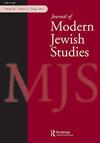Between familiarity and strangeness: Russian Jews in Josep Sabah’s letters from the coast of Entre Ríos
IF 0.4
0 HUMANITIES, MULTIDISCIPLINARY
引用次数: 0
Abstract
This article analyzes the correspondence exchanged between Josep Sabah, a teacher originally from the Ottoman Empire, and the leaders of the Alliance Israélite Universelle and the Jewish Colonization Association, institutions that had sent him to Argentina to found a network of Jewish schools in several towns in the province of Entre Ríos, from 1894 to 1922. In the first place, we focus on the contradictory ways through which this cultured Jew, educated in French and Sephardic schools, represents the new settlers sent from Russia to Argentina by the Jewish Colonization Association. Second, we focus on the self-rendering of this teacher in his letters, and on the tensions between the expectations of his employers, the demands of the settlers and the gradual disenchantment with the conditions of life in his adopted country.在熟悉与陌生之间:Josep Sabah来自Entre海岸的信件中的俄罗斯犹太人Ríos
这篇文章分析了Josep Sabah,一位来自奥斯曼帝国的教师,与以色列世界联盟和犹太殖民协会的领导人之间的通信往来,这些机构从1894年到1922年将他送到阿根廷,在恩特雷省Ríos的几个城镇建立了一个犹太学校网络。首先,我们关注的是这个在法国和西班牙系学校接受教育的有文化的犹太人,代表了犹太殖民协会从俄罗斯派往阿根廷的新定居者的矛盾方式。其次,我们关注这位老师在他的信件中的自我呈现,以及他的雇主的期望、定居者的要求和他对第二国生活条件的逐渐觉醒之间的紧张关系。
本文章由计算机程序翻译,如有差异,请以英文原文为准。
求助全文
约1分钟内获得全文
求助全文
来源期刊

Journal of Modern Jewish Studies
HUMANITIES, MULTIDISCIPLINARY-
CiteScore
0.70
自引率
0.00%
发文量
75
 求助内容:
求助内容: 应助结果提醒方式:
应助结果提醒方式:


